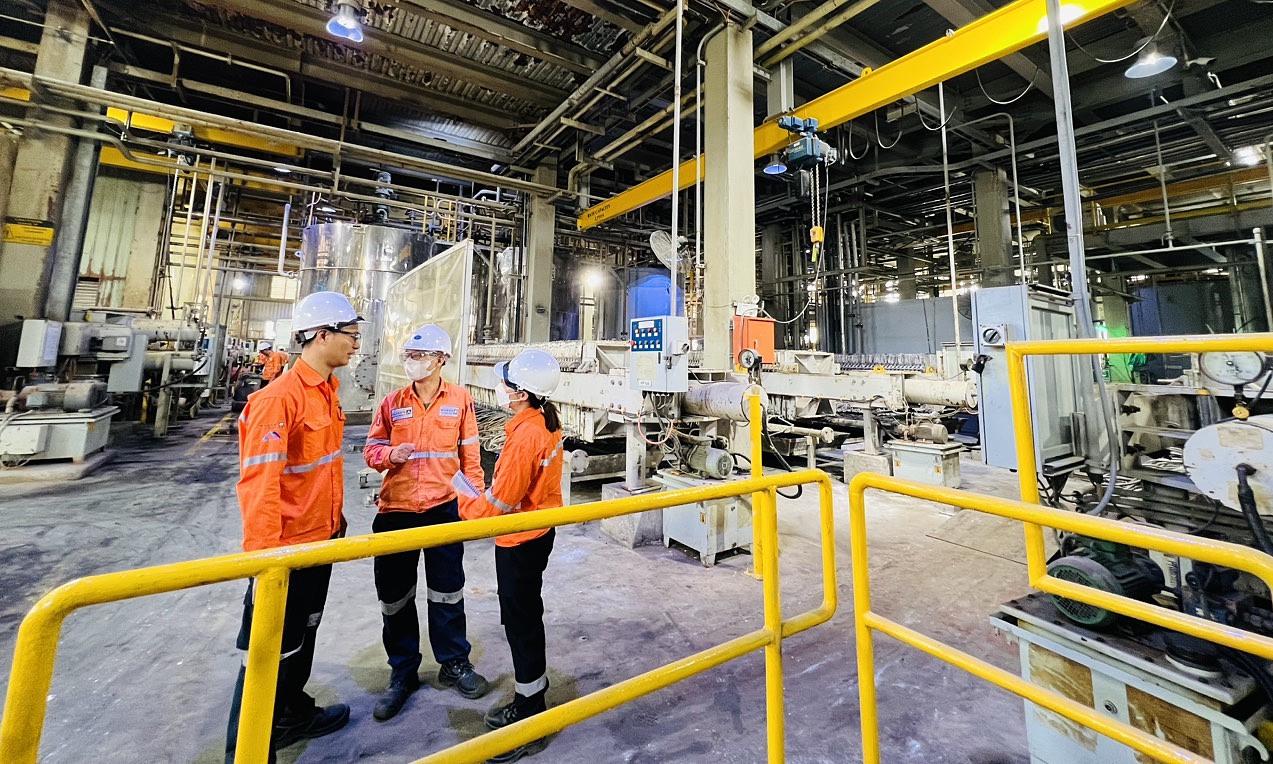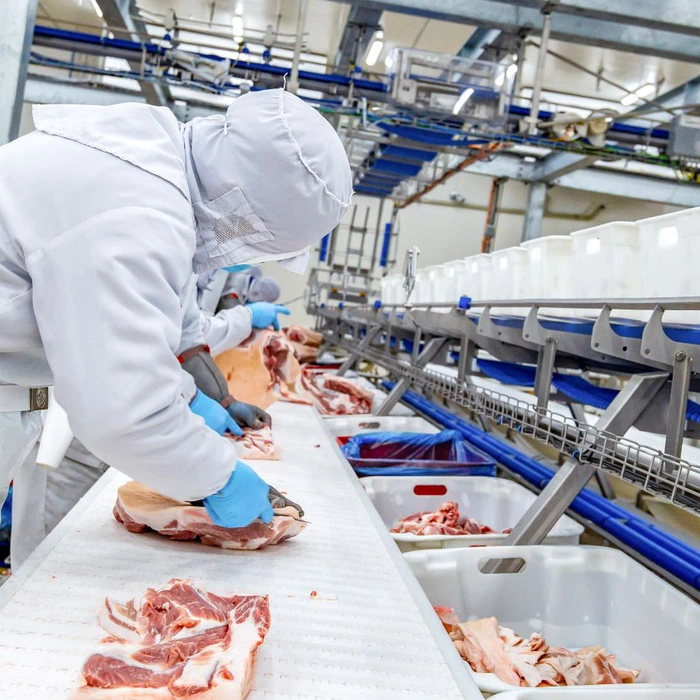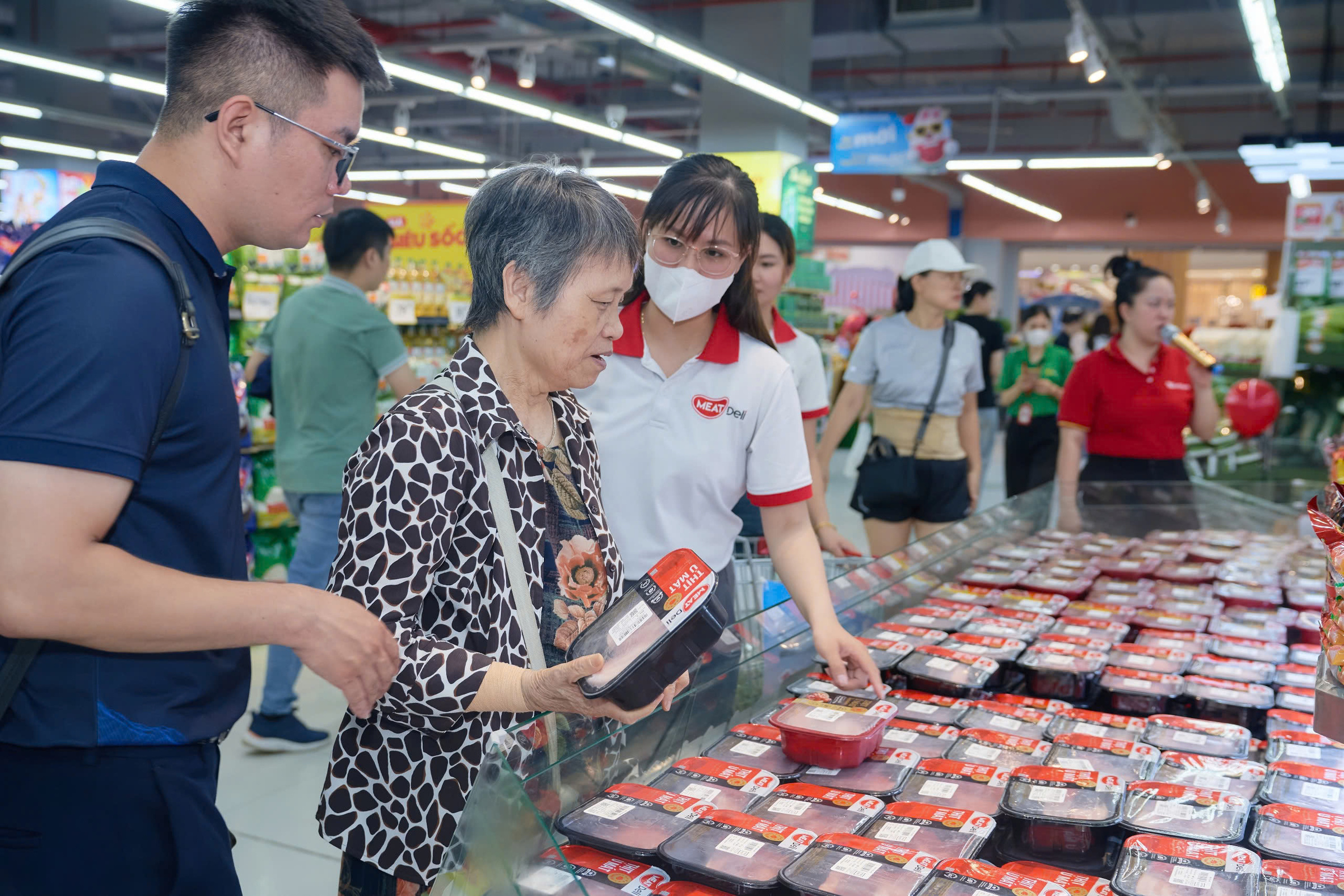Amidst Vietnam's 8% GDP growth in the second quarter of 2025 and the gradual recovery of domestic purchasing power, digital transformation has become a strategic priority for many businesses, a company representative said. For Masan, technology is a supporting tool and a foundational element in creating financial value and enhancing sustainable operational efficiency.
Technology: A lever for sustainable growth
At its 2025 Annual General Meeting of Shareholders, Masan positioned "Go Digital"—a comprehensive digitalization strategy—as the final piece in its transformation from a fast-moving consumer goods (FMCG) company to an integrated consumer-retail-technology platform. The management board emphasized that digital transformation is not merely about implementing technology; it's a strategic driver for optimizing the entire value chain—from planning and production to distribution, retail, and large-scale consumer interaction.
 |
Inside a Masan High-Tech Materials factory. Photo: Masan |
Inside a Masan High-Tech Materials factory. Photo: Masan
Within this comprehensive digitalization strategy, Masan has set a clear objective: each technological initiative must have a tangible impact on costs and profits. One notable example is Winare, an automated ordering platform utilizing artificial intelligence and real-time data. This system replaces traditional manual processes, reducing errors, saving effort, and optimizing operations.
Winare helps reduce the workload for store staff and improves the accuracy of goods allocation, especially for fresh produce. The platform also facilitates more effective inventory management, improves supply capabilities, and minimizes losses. In Ho Chi Minh City, where Masan operates over 600 retail outlets, the spoilage rate for meat products has decreased by nearly 2% after just a few months of implementation, according to a company representative. This equates to tens of billions of Vietnamese dong in savings each month, while also enhancing the overall financial efficiency of the system.
These achieved results demonstrate that Masan views technology not just as a process improvement tool, but also as a lever for growth. The company's leadership asserts that each initiative must be measured by specific indicators such as cost, revenue, or profit margin to ensure practical and sustainable value.
 |
Customers selecting the company's chilled meat products. Photo: Masan |
Customers selecting the company's chilled meat products. Photo: Masan
Expanding retail scale
As part of its long-term strategy for the retail segment, the company aims to have 8,000 stores by 2030. To achieve such a large scale, automation is considered a prerequisite. Winare was first deployed for chilled meat and FMCG products, and will later expand to frozen foods, seafood, fruits, vegetables, and ready-to-eat meals.
This system can accurately order down to individual product units at each store while improving on-shelf availability from approximately 80% to nearly 90%. This increased accuracy boosts revenue and enhances the customer experience, as product availability and completeness are key factors in shopping satisfaction.
 |
European-standard chilled meat production line at the MeatDeli meat processing complex in Ha Nam. Photo: Masan |
European-standard chilled meat production line at the MeatDeli meat processing complex in Ha Nam. Photo: Masan
A Masan representative noted that initiatives like Winare are necessary given the rapidly changing landscape of Vietnam's retail market. Consumers are becoming more cautious with their spending due to concerns about living expenses and tariffs impacting disposable income. Traditional retail channels still hold a significant market share, but they frequently adjust inventory, causing disruptions in the distribution chain. Meanwhile, modern channels are developing rapidly, but this also brings significant operational pressures as Masan opens hundreds of new stores each year.
In this context, digital transformation becomes a solution for balancing expansion goals with the need for cost control. Automation allows Masan to expand its scale while maintaining efficiency and creating competitive advantages in meeting the ever-increasing demands of consumers.
Challenges and the long-term journey
However, the digitalization journey also presents challenges. The investment costs for data infrastructure, AI model development, and technology personnel training are substantial. Changing operational habits and synchronizing new processes require structured training plans and coordination across multiple departments. Moreover, as system operations rely on real-time data, the demands for accuracy and information security are increasing, requiring continuous updates and improvements to the technology platform.
Thanks to its approach of linking technology with specific financial outcomes, Masan has seen significant improvements in its modern distribution and retail operations. These results demonstrate that technology not only supports operational optimization, but also acts as a lever for the company to adapt and achieve sustainable growth in a competitive market.
Hoang Dan












